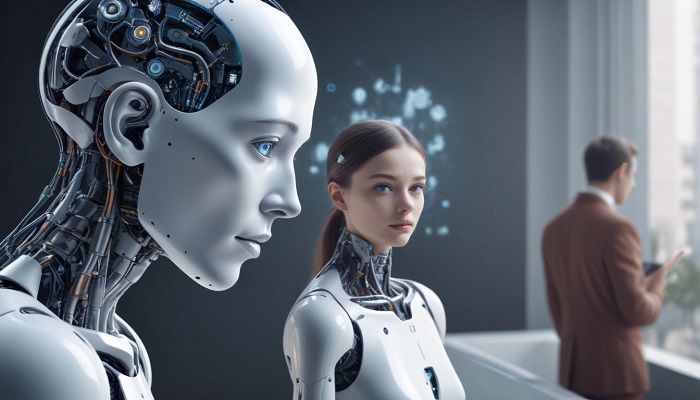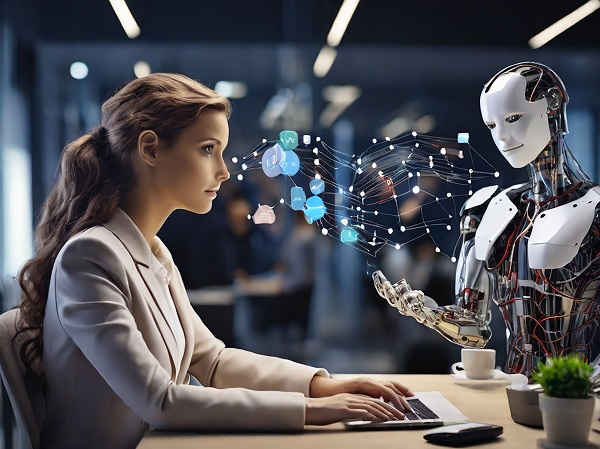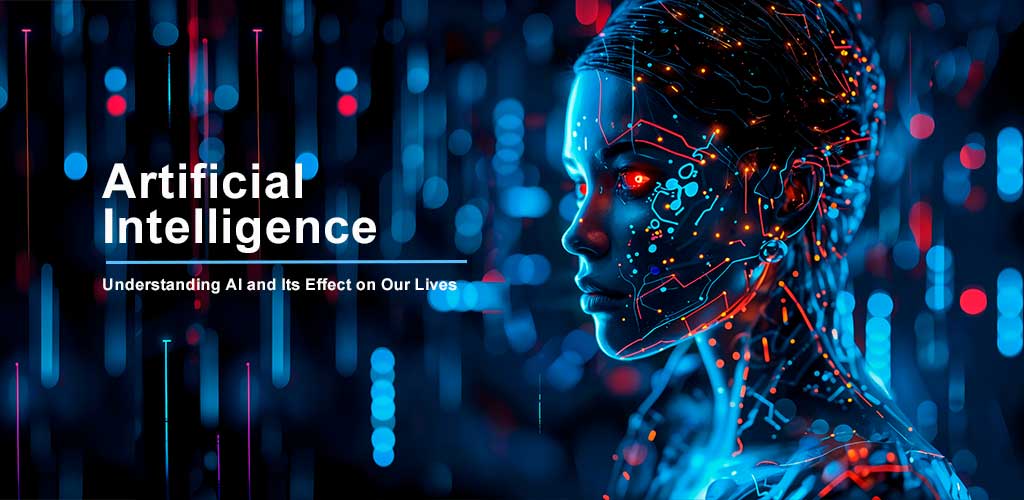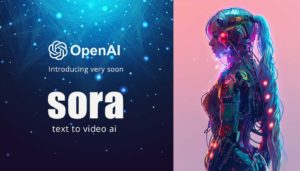What is Artificial Intelligence?
Artificial Intelligence, commonly known as AI, is a term you might have heard lately. However, what is artificial intelligence precisely, and how does it affect our day-to-day existence? In this article, we’ll break down what artificial intelligence is in simple terms and explain why it’s such a big deal.
Understanding Artificial Intelligence
Making software and devices that are capable of thinking and learning like humans is known as artificial intelligence.. These machines are programmed to perform tasks that usually require human intelligence, such as recognizing speech, solving problems, making decisions, and even understanding language.
The main goal of artificial intelligence is to create systems that can operate independently, without the need for human intervention. Artificial intelligence is used,

for instance, when you utilize a virtual assistant like Siri or Google Assistant. These systems have the ability to operate smart gadgets in your house, make reminders, and provide answers to your questions.
How Does Artificial Intelligence Work?
Artificial intelligence works by using algorithms, which are sets of rules or instructions that tell a computer how to perform a specific task. These algorithms are fed large amounts of data, allowing the AI to learn from this information and improve over time.
There are different types of artificial intelligence:
- Narrow AI: This is the most common type of artificial intelligence, designed to perform a specific task. Examples include recommendation systems on Netflix or the face recognition feature on your smartphone.
- AI in general: This more sophisticated version of artificial intelligence is capable of carrying out any intellectual work that a human can. However, this level of AI is still in the research phase and doesn’t exist yet.
- Superintelligent AI: This is a theoretical type of artificial intelligence that would surpass human intelligence in every aspect. It’s a concept often explored in science fiction but remains far from reality.

Applications of Artificial Intelligence
Artificial intelligence is used in various industries, making our lives easier and more efficient.
Here are some common applications:
- Healthcare: Artificial intelligence helps doctors diagnose diseases, recommend treatments, and even perform surgeries with greater precision.
- Finance: Banks and financial institutions use artificial intelligence to detect fraudulent transactions, offer personalized financial advice, and automate trading.
- Entertainment: Streaming services like Netflix use artificial intelligence to suggest movies and shows based on your viewing history.
- Transportation: Self-driving cars are a prime example of artificial intelligence in action, where AI systems control the vehicle and navigate roads safely.
- Customer Service: Many companies use chatbots powered by artificial intelligence to handle customer inquiries and provide support 24/7.
The Future of Artificial Intelligence
Artificial intelligence has a bright future, but it is also unclear. As technology continues to advance, artificial intelligence will likely become even more integrated into our lives. We might see AI systems that can understand human emotions, create art, or even develop new scientific theories.
However, with these advancements come challenges. Many people are concerned about the ethical implications of artificial intelligence, such as job displacement, privacy issues, and the potential for AI systems to be used in harmful ways.

Why is Artificial Intelligence Important?
The potential for artificial intelligence to completely transform our way of life and work makes it significant. It can make tasks faster, more efficient, and often more accurate than humans can. In industries like healthcare, finance, and transportation, artificial intelligence is already making significant improvements.
Moreover, artificial intelligence can help solve complex problems that would be impossible for humans to tackle alone. For example, AI is being used to analyze large datasets in scientific research, leading to discoveries in fields like medicine and climate science.
In simple terms, artificial intelligence is the creation of machines that can think and learn like humans. Artificial intelligence is transforming healthcare and entertainment, as well as how we live and work. While it offers many benefits, it also presents challenges that society will need to address. As we move forward, understanding what artificial intelligence is and how it works will become increasingly important.




